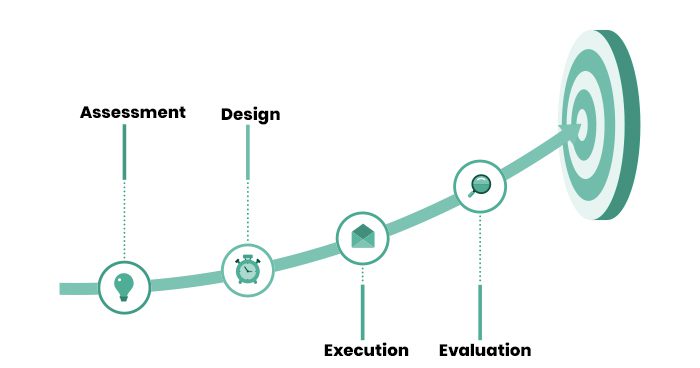Employees join companies with expectations of being rewarded fairly. Companies’ rewards are benefits to employees, either economic or non-economic, for performance. It comes in several forms, with the most efficient supporting its overall strategy, purpose, culture, performance, and employee requirements. Rewards can be improved salary/ wages known as economic rewards, housing, health care that caters to individuals and families, etc.
As companies navigate the COVID-19 pandemic, a key part of recovery is to review its current rewards system to show financial and non-financial incentives changes. Non-financial incentives have become increasingly significant as organisations seek to retain flexible talents in a post-COVID era. Due to new business models and ways of working, companies need to revaluate how they measure and reward performance.
For effective employer and employee relationships, rewards, perks, benefits are increasingly important as being paid. Those days are long past when employees would only expect salaries from employers; the preference of the current workforce has drastically changed.
Reward Management is about implementing strategies and formulating policies to reward employees for outstanding performance fairly and equitably. This makes employees feel valued, increase job satisfaction, boost productivity, improve retention, create a positive organisational culture, improve skills and knowledge, reinforce and define organisational structure. For a business to run successfully in today’s market or industry, its reward management must be implemented appropriately with the right rewards system in place. The rewards system is expected to be clear, attractive enough to motivate employees, and the support of top management is essential for success.
Today, companies are changing their rewards systems to adapt to internal and external developments. It is a crucial tool for increasing employee morale and business growth.
Implementing an effective Total Rewards Strategy consist of four steps:
Assessment: At this stage, the business’s current benefits and compensation system is investigated to determine effectiveness in achieving organisational goals and objectives. Several activities occur during this phase, including employees participating in surveys to get their opinion regarding current pay, benefits, and career paths. Recommendations during this phase are critical because it helps in putting in place a new and effective rewards system beneficial to the company, its employees and poses questions such as:
- What level of performance should be eligible for a reward?
- What type of actions should be rewarded?
- What type of rewards will work best considering the company’s current state?
- How does the company intend to fund this presently and in the future?
Design: At this stage, different reward strategies are identified and examined to ascertain the most effective. Various rewards for accomplishments will be decided for deserving employees. For the Total Rewards Strategy, pay reward is not the only consideration as it is no longer the ultimate motivator; other added benefits should be considered for employees, including training, flexible work hours, and time off work to achieve the company’s objectives.
Execution: At this stage, the new rewards system is implemented, and strategy is communicated to employees using different channels to ensure clarity. Those who would decide who deserves to be rewarded, such as managers and management, will be trained for the effectiveness of the process and for employees to recognise what needs to be done for rewards eligibility.
Evaluation: The new plan efficiency must be evaluated, and results presented to company decision-makers. Amendments to the approach for future implementation can be proposed based on this.
An effective reward management system must be able to suit the requirements of employees and address below basic needs:
- Compensation: This refers to a monthly salary.
- Benefits: End of year profit sharing, bonuses, and other types of staff welfare.
- Recognition: Employees want to be celebrated for a job well done, leading to more exposure. According to Officevibe, “82% of employees think it is better to give someone praise than a gift”. A survey by Psychometrics revealed that “58% of employees indicated that being recognised would improve their engagement at work”. Also, Gallup poll showed that “when employees don’t feel recognised, they are twice as likely to say they want to quit within the next year”.
- Appreciation: This can be in the form of awards given for contributions to the business’s success. According to Officevibe, “The number one reason why most people leave their job is that they don’t feel appreciated.”
Many companies mostly focus on financial rewards because they are the easiest and overlook one or more of the above elements, which are as important and, by doing so, struggle to retain experienced, skilled, and top-performing employees
Reward management entails determining and providing rewards based on job performance and keeping track. This will encourage employees to work hard to achieve organisational goals and objectives. The Reward Management system should be aligned with job performance, employee needs, and overall organisational capabilities. The right Reward Management system increases employee engagement, productivity through recognition and rewards. When employees feel valued, their well-being is improved, which helps retain skilled and talented staff.
We have over 28 years of experience providing Reward Management services to companies in various industries. We understand that reward management programmes have a place in both small and large businesses as recognition of outstanding performances by employees will enable companies to gain an edge over competitors, motivation and productivity level of employees will improve drastically. For more information on how we can help you, please email: people@phillipsconsulting.net
Written by:

Omotayo Afolabi
Senior Analyst

